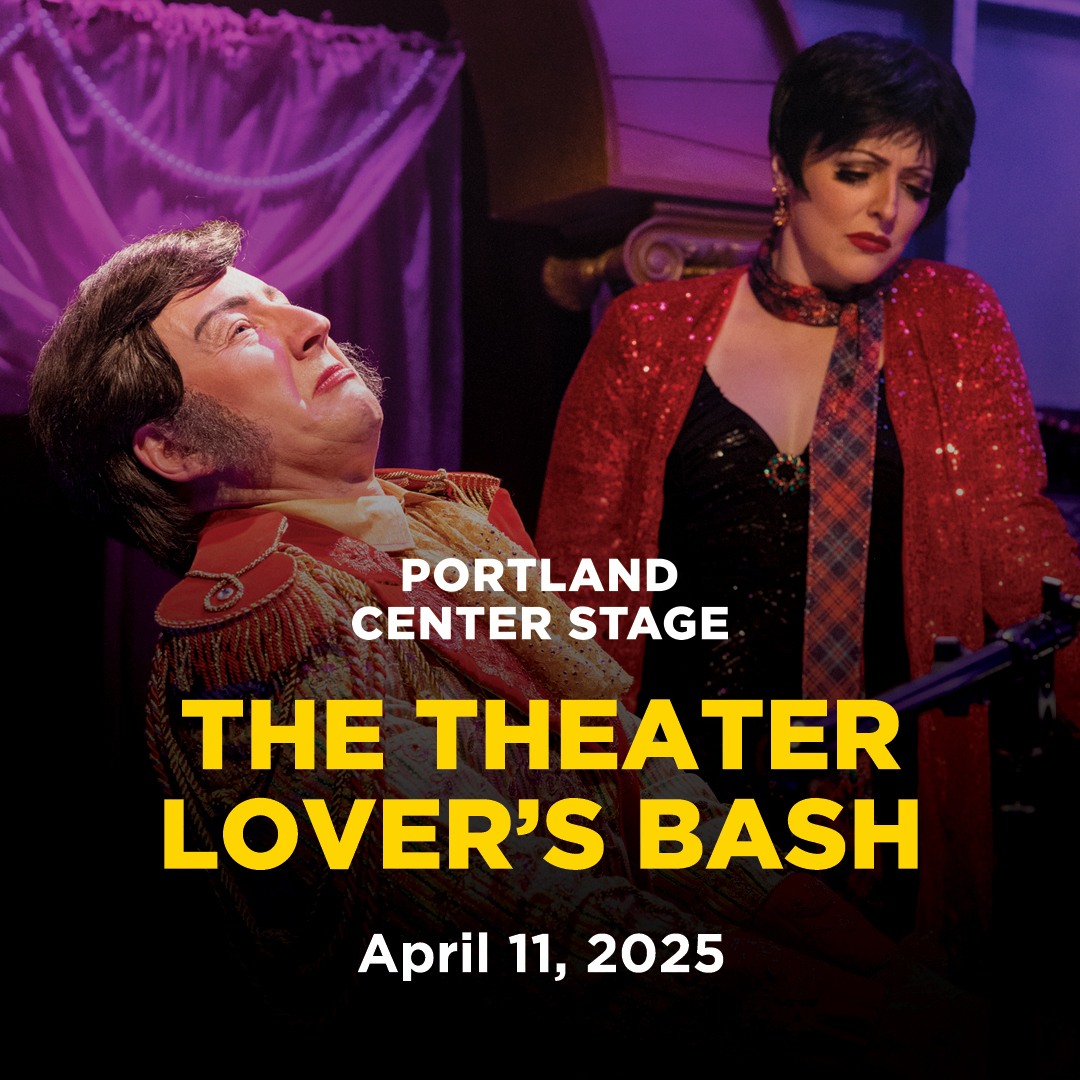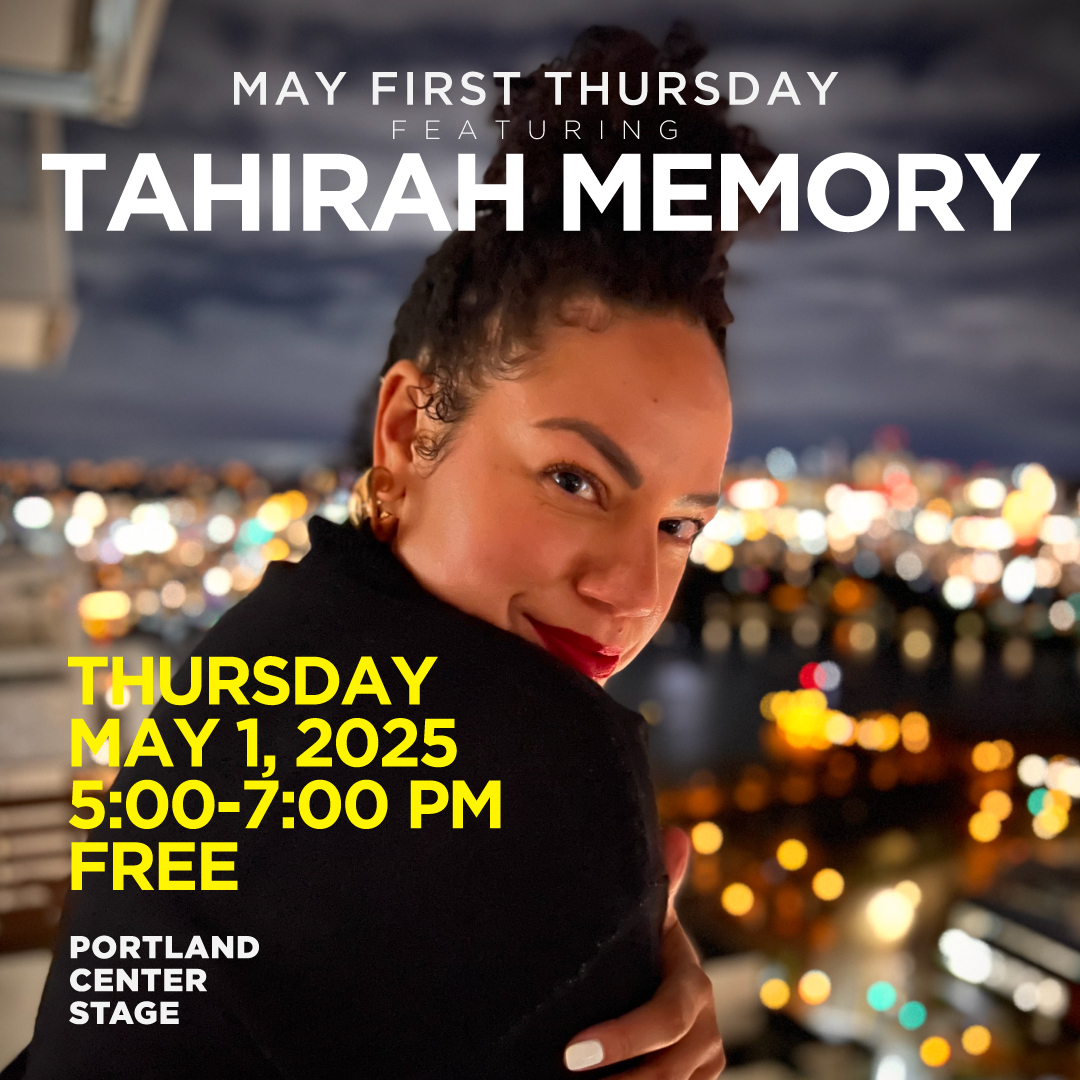Our Tangled Roots: An interview with Redwood playwright and performer Brittany K. Allen

*Redwood* playwright and performer Brittany K. Allen
In Redwood, Brittany K. Allen uses her signature playfulness, verve, and bold theatricality to scale the branches of our shared American lineage. Here, she digs into the genesis of her new play — our 28th world premiere to date and the very first selected by Artistic Director Marissa Wolf.
Why were you initially drawn to exploring a family’s excavation of their ancestry and, in particular, how that might impact an interracial couple?
Redwood actually has two prongs of autobiographical inspiration. A few years back, one of my amazing (and for what it’s worth, utterly un-Stevie-like) aunts became interested in charting our family’s genealogy. As Stevie says in the play, there’s a lot of freight to this exercise for Black Americans, because for many of us, mining our histories isn’t this joyfully curious, what-famous-president-am-I-related-to kind of hobby/mission, but one that’s necessarily going to lead you back to chattel slavery and plantation rape (that is, if you can find your relatives at all). But I admired, and continue to admire, that impulse to situate oneself in the fabric of this country’s history by charting the family, finding the names, really attempting to imagine who those ancestors were. So that mission, and some of the alarming particulars my aunt turned up, inspired Stevie’s quest in this play.
Around the same time all this was happening, I was in an interracial relationship and was learning how to speak about micro and macroaggressions in this highly intimate way, with a person who was theoretically supposed to understand everything about me. And this work, I found, was very difficult. As a person who’s grown up in a majority white community as a sort-of perpetual “Only” in the room, I feel like I’ve had to become versed in the many subtle ways you have to navigate white spaces in a brown body — the ways you defend yourself, or work to make people more at ease, or attempt to name your pain when there’s a pronounced power dynamic in the room. But the way one is with a partner is a lot different than how one is with a friend, or a colleague, or even a family member of a different race. I got into a lot of frustrating, mind-opening conversations while I was learning how to sit in a love that tested my politics and, occasionally, my concept of selfhood. And some of those conversations — and others I’ve had since, in other relationships — inspired the Meg and Drew characters, who are also learning how to do this thorny work of recognizing the other in a world that will never see them on equal footing.
One of the powerful things about this play is that it grapples with slavery and racism through both a present-day and historical lens, concurrently, and we get to see how characters across generations — of different races, ages, stages of life, even religious beliefs — are affected. How did you approach fleshing out each of the members of this family tree? What was important to you as you thought about the different personalities and perspectives you wanted to bring to life on stage?
I love this question! Yes, a major goal of the play is to acknowledge the hugeness of any family’s tree and show how we are all of us in America tangled up in one another. And at the play’s end — spoiler alert — I enlisted the chorus as Meg and Drew’s intertwined ancestors because I wanted to show in a brief burst how diverse these stories are once you really go digging. Everyone in America, I'll assert, was affected by slavery. And I wanted to show a gamut of those uniquely affected lives, from Hattie to Tatum to Napoleon to the matriarch Alameda.
Perspective and personality-wise, a running theme of the play for me is the conflict between those Black folks like Mom, or perhaps Instructor, who find more solace in facing forward than looking back, and are perhaps not as compelled by the genealogy project as Stevie or Meg. A lot of my peers of color can’t understand that position, but it’s a way of being that resonates with a lot of elders on both sides of my family, and I wanted to honor that as I was attempting to articulate how a varied group of Black people consider their position in present-day America. Similarly, I included a glimpse of Harriet and Tatum as Drew’s parents, because I wanted to show a completely different kind of interracial relationship, with an entirely different coping language and shorthand.
At two moments in the script, Meg and her boyfriend Drew share a similar sentiment: “I'm not naïve — I know about American history.” What is the significance of this line, and why was it important to put it in both of these character’s mouths?
This line is important to me because I wanted to communicate — with a minimum of cheek — that Meg and Drew are intelligent, thoughtful, urban millennials. For lack of a better word, they’re “woke.” They’ve been to the Decolonize-Your-Mind workshops, they both attend anti-police brutality rallies, and they have a language, already, that helps them metabolize the historical irony of their situation. Because I’ve already seen the plays and stories in which we leave feeling that the interracial love story is doomed, I wanted to write the version where we do trust that these two have initial chemistry and fondness and respect for the other; they could actually be MFEO [made for each other]. But I situated the play very deliberately at the moment when even the best defenses — knowledge, humor, love — fail. These two characters know everything one could ostensibly get from a Zinn book about American history, but they haven’t entirely personalized this work, and that’s what puts them at risk.
How did you settle on the title Redwood?
I don’t remember when it came to me, exactly! Bolt of inspiration in the night, perhaps? I started calling drafts “Redwood” because I kept coming back to the mammoth nature of the genealogy project, and this idea that once you find one “branch” of a family tree you’re promptly lead to 45 other people, stories, and lines. The physical chart itself wouldn’t fit on a page. And sequoia sempervirens (or redwoods) are some of the oldest and tallest trees in this country, so ...
Is there anything else you'd like to share with audiences about this beautiful play?
I hope you enjoy it! And that it inspires difficult but transformative conversations! I hope it invites you to consider, if you haven't, how this macro-political structure might personally affect you. And if you have already thought about all of this a lot, I hope it's an affirming 90 minutes. Also, thank you for coming! I'm honored to be here!
Portland Center Stage is committed to identifying & interrupting instances of racism & all forms of oppression, through the principles of inclusion, diversity, equity, & accessibility (IDEA).



















